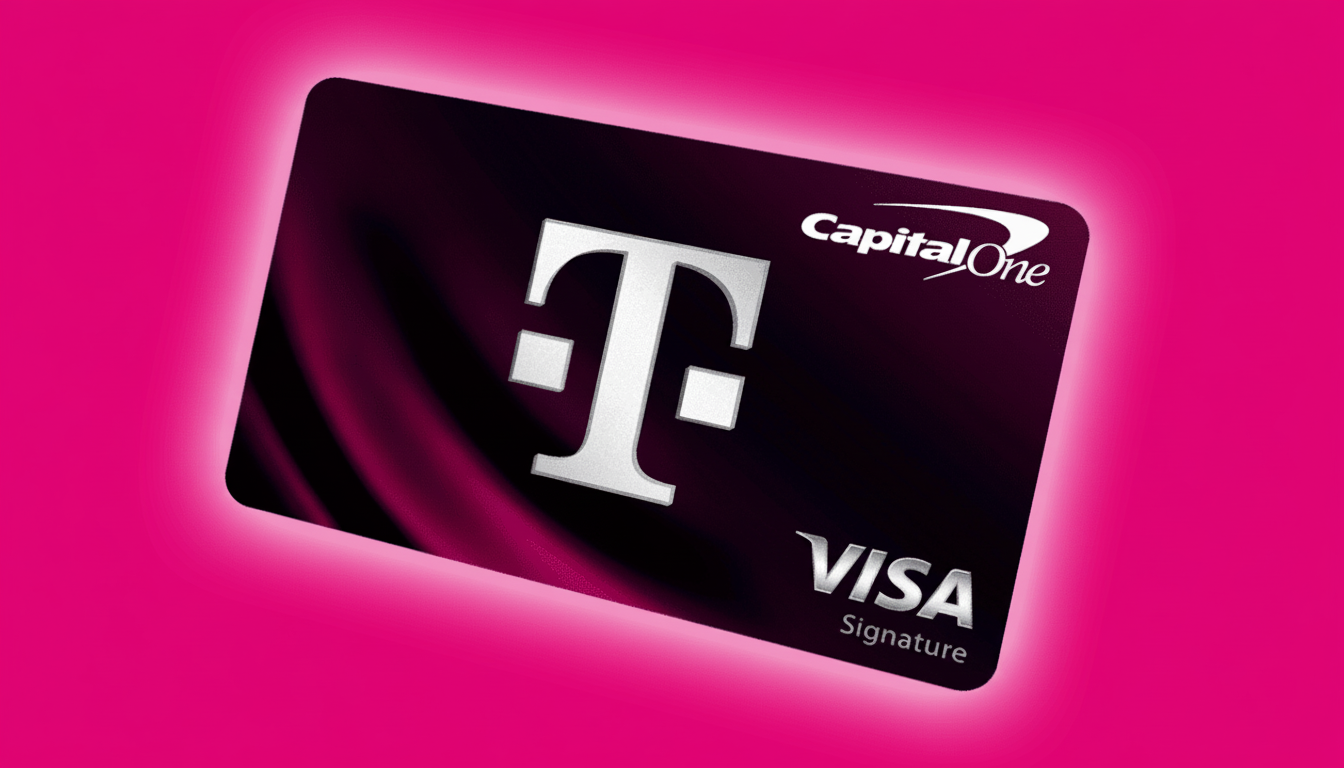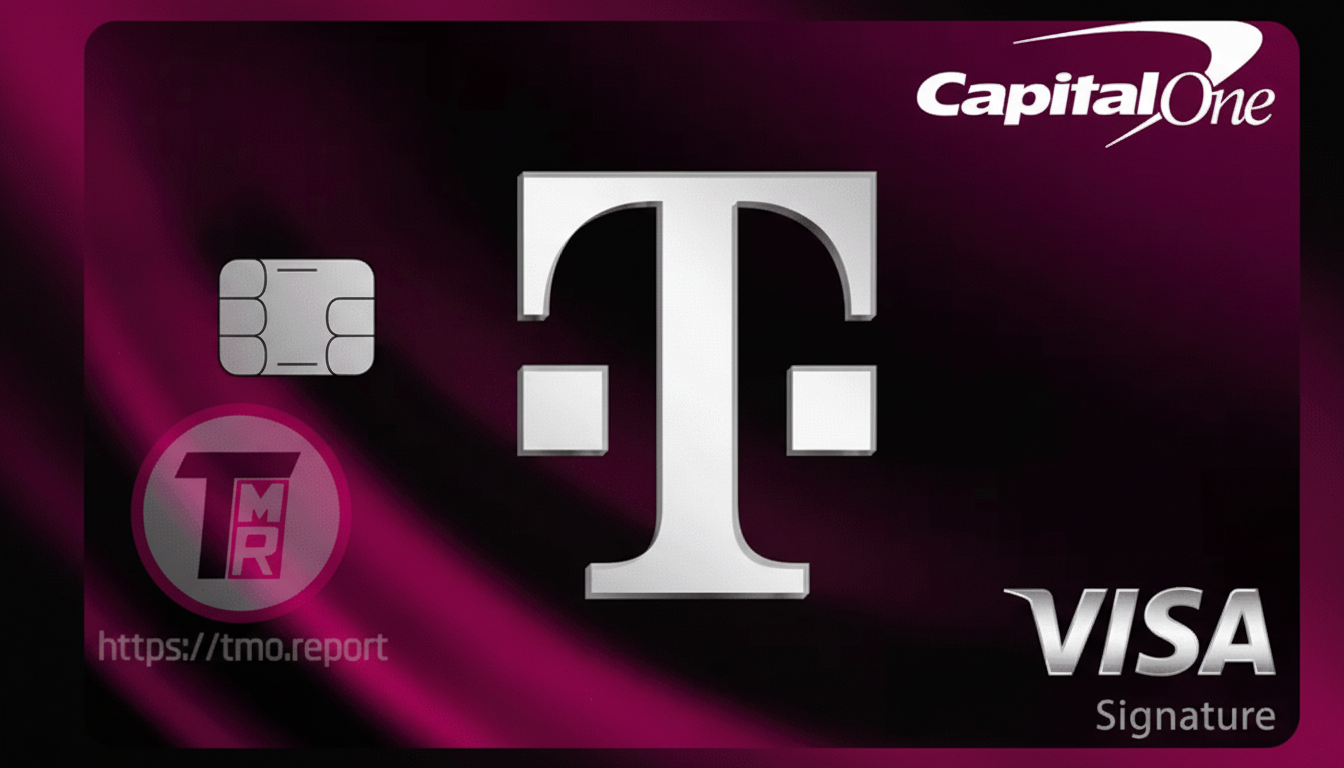T-Mobile’s long-rumored credit card seems to be inching closer to reality, with new language found inside one of the carrier’s apps suggesting that the T-Mobile Visa credit card is now a part of its list of eligible AutoPay options. The soft announcement is the firmest indication yet that the company plans to unveil its first co-branded card in a few months after several hints and some behind-the-scenes work.
Evidence of the T-Mobile Visa card emerges in app
On Twitter and the Reddit forum of the internet discussion site Reddit, users have reported seeing a new AutoPay screen that includes the T-Mobile Visa credit card among accounts and debit cards. Other credit cards, and even Apple Pay and Google Pay, are specifically not on the list. The T-Mobile Visa text is said to point to a support page not live yet, implying the web portal and customer messaging are being readied in advance of an official launch.
- Evidence of the T-Mobile Visa card emerges in app
- Why a carrier-backed credit card makes sense now
- What to expect from the T-Mobile card features and perks
- The potential savings for T-Mobile customers using it
- Industry context and competitive pressure on carriers
- Bottom line: signs point to imminent T-Mobile card launch

The app clues jibe with reports from April that discovered a magenta T-Mobile card, which has the Visa Signature and Capital One logos, among assets connected to the T-Life app. Observers and the Pokémon Go mobile community sleuths hinted at in-app management, suggesting card controls and rewards tracking could join already existing account functionality.
Why a carrier-backed credit card makes sense now
In recent months T-Mobile has also started to crack down on its AutoPay policy, pushing customers toward using debit cards or bank accounts in order to get discounts off their bills. That shift lowers the costs of payment processing, since the interchange fees on a credit card can be substantially higher than what is charged for ACH or debit transactions. For a national carrier with a large subscriber base, cutting even a fraction of 1% off processing represents some significant savings.
A co-branded card provides a clever workaround. If T-Mobile can establish its own Visa as the only credit card that gets you AutoPay discounts, it stands to regain some of that economics through revenue sharing and bring back a benefit some customers liked. It’s also a proven retention tool: co-marketed cards, when tied to rewards that are associated with monthly bills and device purchases, often make switching more difficult (and stickier over time).
What to expect from the T-Mobile card features and perks
Nothing’s official yet, but the Visa Signature badge usually denotes network benefits to build from, with issuers then adding rewards and protections. If it really is Capital One as the issuing bank, anticipate things like sophisticated account management, strong fraud safeguards and even virtual card numbers (like with their other products). Integration by way of the T-Life app would probably also allow for direct, real-time provisioning, in-app payments and access to rewards customers would otherwise rack up on both their services and a chain of network-connected devices.
Competitor precedents provide a roadmap. Competing carriers already offer co-branded cards with bill-focused rewards, sign-up bonuses and purchase coverage on devices. Expect T-Mobile to focus on utility with real bill credits, increased earnings on carrier spend and, better yet, maybe perks such as phone protection when the bill is paid with this card. But the biggest attraction is that AutoPay savings for a credit transaction are back — something many users have been clamoring for after some policy changes were made.

The potential savings for T-Mobile customers using it
And if the card ends up being the only credit option that keeps AutoPay discounts in place, the math could start adding up.
A family of four with three lines each would save $5 a line each month, or $20 per month — or about $240 a year in recurring value before considering any card rewards. “Tools like payday loans often have such a high cost, and having these hard stops can actually be very beneficial to consumers,” said Micheline Maynard, senior editor of “The American Mode” at Curbed.
As ever, the fine print is critical. APRs, annual fees and the costs of carrying a balance can more than cancel out any rewards if you aren’t careful. Prospective applicants can also anticipate a credit check, and should think about how having a new line of credit impacts overall utilization and their score.
Industry context and competitive pressure on carriers
T-Mobile has spent the last several years positioning itself as the consumer-friendly “Un-carrier,” but it is subject to many of the same economic pressures as its rivals. Co-branded cards are common in sticky, recurring spend categories, from airlines to retailers and telecoms. With more than 100 million connections on its network, even if only a fraction of the carrier’s users adopt the card offering, that would still be a significant payments footprint — and therefore strong loyalty lever.
For Visa and an issuing bank partner, a carrier card provides regular, subscription-like transaction volume and a built-in way to cross-promote. It completes the loop of device financing, service billing and rewards for T-Mobile — all in a single app experience.
Bottom line: signs point to imminent T-Mobile card launch
Between specific references in the live app and a dormant support link seemingly ready to go, the T-Mobile Visa credit card appears to be nearing launch. The deal’s official terms, rewards and eligibility details haven’t been revealed yet, but the pieces of this puzzle suggest a co-branded credit product, one to bring back AutoPay perks encouraging customers to stick around while shifting more of the payments economics in-house. Keep an eye out for a proper launch as the app and web portal complete their rollout.

